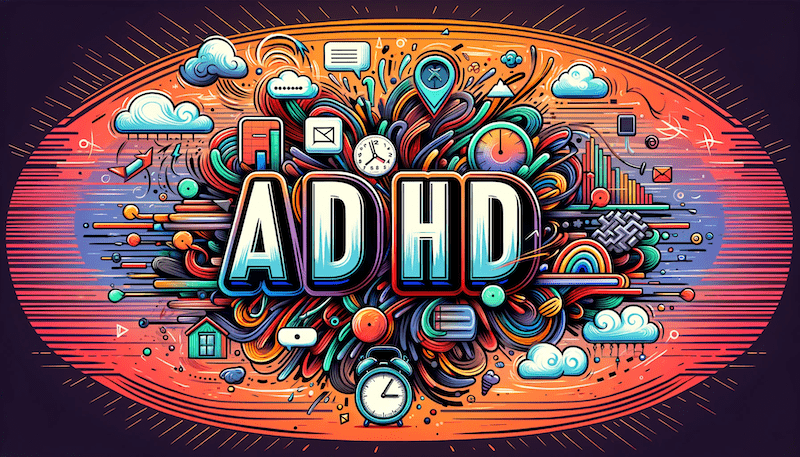Comprehensive ADHD Testing Guide: Methods and Insights for Accurate Diagnosis
January 14, 2024 - Reading time: 5 minutes

Accurate ADHD diagnosis is pivotal, not just for understanding the individual's challenges but also for effective management and treatment.This article provides an in-depth look at the various ADHD testing methodologies, emphasizing their significance for parents and clinicians.
Types of ADHD Testing: Expanding the Understanding
ADHD testing is a nuanced process involving various methods, each contributing uniquely to the comprehensive understanding of the individual's condition. Let's delve deeper into these methods:
Clinical Interviews
Clinical interviews are a fundamental component of ADHD diagnosis. These interviews involve in-depth discussions with the patient, and in the case of children, often include their parents or guardians. The primary aim is to gather detailed behavioral information and understand the patient's life experiences and challenges.
- For Children: The clinician discusses the child's behavior at home, school, and in social settings, exploring symptoms like inattention, hyperactivity, and impulsivity.
- For Adults: The focus is more on how ADHD symptoms impact their daily life, work, and relationships.
Clinical interviews, while rich in personal insights, can be influenced by the interviewer's biases or the patient's ability to accurately recall and articulate their experiences. Research by Youngstrom et al. highlights the importance of multi-informant interviews to improve reliability in ADHD assessment.
Parent-Report Questionnaires
These questionnaires are designed for parents to report their observations of their child's behavior in various environments.
- Usage: They cover aspects such as attention span, hyperactivity levels, impulsivity, and how these behaviors contrast in different settings like home and school.
- Advantages: These tools are valuable in providing standardized data, allowing for consistency in assessing symptoms across different cases.
- Challenges: However, as highlighted in a study by Narad et al., parent-report questionnaires can be subjective, influenced by the parent's perceptions, and potentially their own stress levels and mental health status.
Self-Report Questionnaires
Primarily used with adults, self-report questionnaires enable individuals to report their symptoms, offering an introspective look into their struggles with ADHD.
- Relevance: Adults can provide self-reflections on their concentration difficulties, organizational challenges, and impulsivity, which are crucial for diagnosis.
- Limitations: A study by Sibley et al. points out that while self-reports are vital for capturing the adult experience of ADHD, they can be limited by the individual's self-awareness and honesty.
The accuracy of ADHD diagnoses depends significantly on the combination of these strategies. Clinicians often rely on a mix of clinical interviews and questionnaires to form a well-rounded view of the patient's symptoms and behaviors.
Harms and Benefits of Establishing the Diagnosis
Diagnosing ADHD is a double-edged sword. While it opens doors to tailored treatment and support, it also carries the risk of labeling and stigmatization, especially in children. Clinicians must balance these factors, ensuring that the benefits of diagnosis outweigh the potential harms.
Treatment Options
Treatment for ADHD varies based on individual needs and may include:
- Medication: To manage symptoms effectively.
- Behavioral Therapy: To modify behavior.
- Cognitive-Behavioral Therapy (CBT): To change thought patterns and behaviors.
ADHD testing is a multifaceted process, crucial for accurate diagnosis and effective treatment. Parents suspecting ADHD in their child should seek professional evaluation to ensure appropriate intervention.
In conclusion, each of these testing methods brings valuable insights to the ADHD diagnostic process. Clinical interviews provide a personal and detailed perspective, parent-report questionnaires offer a structured and environmental viewpoint, and self-report questionnaires capture the internal experience of adults with ADHD. Clinicians typically use a combination of these methods, as each compensates for the limitations of the others, to arrive at a comprehensive and accurate diagnosis.

